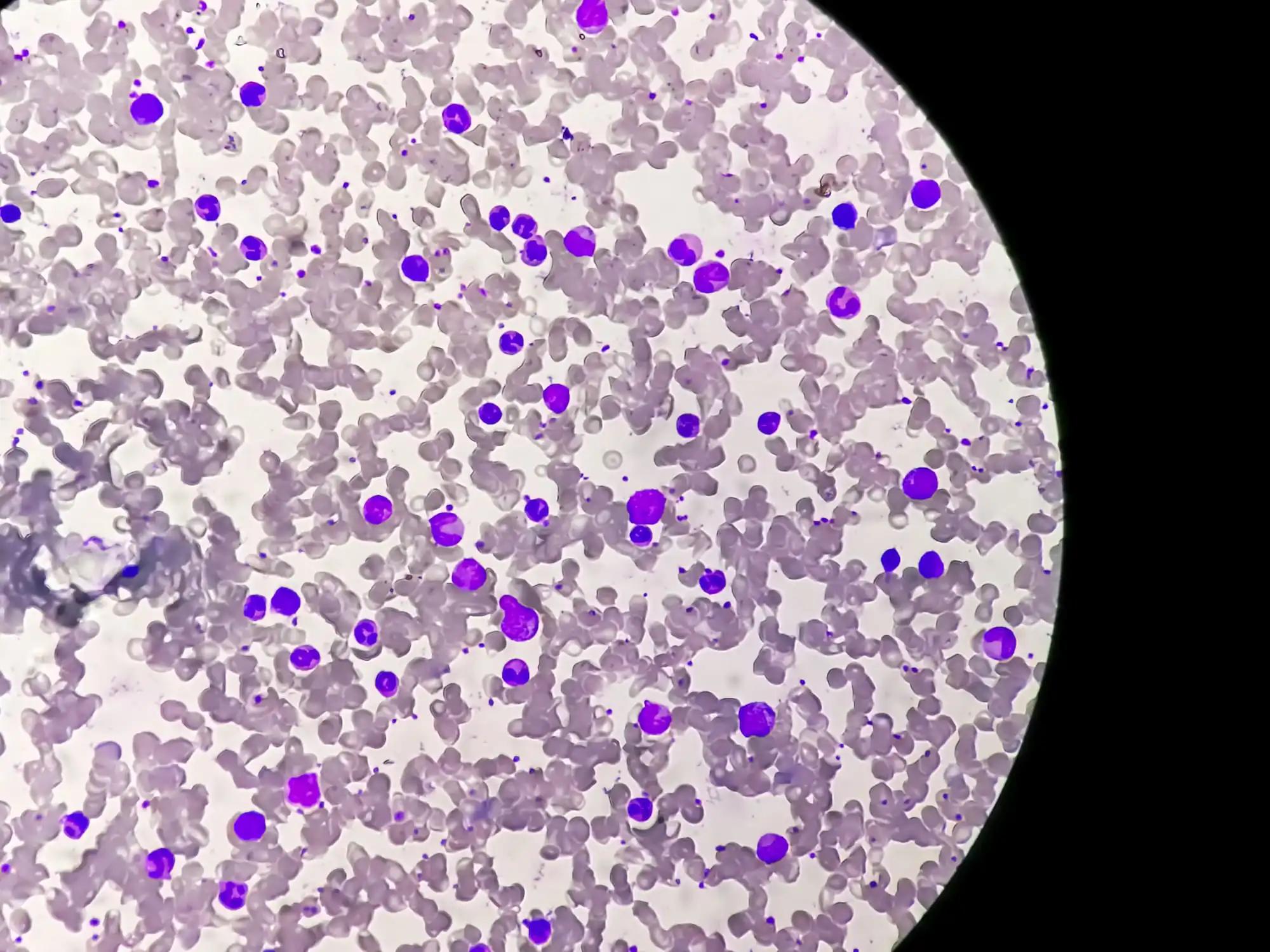KEY TAKEAWAYS
- The Phase 3 ASCEMBL study shows that after a median follow-up of 2.3 years, asciminib remains more effective and better tolerated than bosutinib.
- Patients who had received ≥2 TKI treatments were randomized into 2 groups and were given 40mg of Asciminib twice a day or 500 mg of Bosutinib once a day.
- The MMR rate of Asciminib was higher than that of Bosutinib, with the MCyR-adjusted MMR rate difference being 21.7%.
- Asciminib continued to have superior efficacy and safety than Bosutinib, with fewer AEs leading to treatment discontinuation.
The oral, small molecule tyrosine kinase inhibitor (TKI), Asciminib was the first BCR::ABL1 inhibitor to specifically target a protein called BCR-ABL, responsible for the overproduction of the abnormal white blood cells in chronic myeloid leukemia (CML), cancer that affects the blood and bone marrow. Oral ABL001 or Asciminib is an approved drug to treat adult patients with Philadelphia chromosome-positive CML in chronic phase (CML-CP) worldwide.
In the ASCEMBL study, CML-CP patients who received at least 2 tyrosine kinase inhibitors (TKIs) treatments were randomized 2:1 using the major cytogenetic response as the baseline for stratification. While one group was administered 40 mg of Asciminib twice a day, the other group was treated with 500 mg of Bosutinib once a day.
The results of this study during the median (follow-up) FU of 2.3 years were consistent with the primary analysis results. In terms of efficacy and safety, Asciminib proved superior to Bosutinib. The key secondary endpoint major molecular response (MMR) rate at the 96th week was 37.6% and 15.8% with Asciminib and Bosutinib, respectively. The baseline MCyR (major cytogenetic response) adjusted MMR rate difference between the two was 21.7% (95% CI, 10.53–32.95; two-sided p = 0.001).
Asciminib performed better than Bosutinib in terms of Adverse Events (AEs) as well. The 56.4% grade ≥3 AEs occurred with Asciminib, while 68.4% occurred with Bosutinib. 7.7% AEs led to treatment discontinuation with Asciminib, less than one-third of the 26.3% AEs that led to treatment discontinuation with Bosutinib. Proportionately, more patients remained with Asciminib than Bosutinib and benefited for a longer time.
The data of the study supports Asciminib as the standard care for treating patients with CMlL-CP who have ≥2 prior TKI treatments, such as Imatinib, but might have developed resistance or intolerance to those.
Source: https://www.nature.com/articles/s41375-023-01829-9
Clinical Trial: https://clinicaltrials.gov/ct2/show/NCT03106779
Hochhaus, A., Réa, D., Boquimpani, C., Minami, Y., Cortes, J. E., Hughes, T. P., Apperley, J. F., Lomaia, E., Voloshin, S., Turkina, A., Kim, D. W., Abdo, A., Fogliatto, L. M., le Coutre, P., Sasaki, K., Kim, D. D. H., Saussele, S., Annunziata, M., Chaudhri, N., Chee, L., … Mauro, M. J. (2023). Asciminib vs bosutinib in chronic-phase chronic myeloid leukemia previously treated with at least two tyrosine kinase inhibitors: longer-term follow-up of ASCEMBL. Leukemia, 10.1038/s41375-023-01829-9. Advance online publication. https://doi.org/10.1038/s41375-023-01829-9



